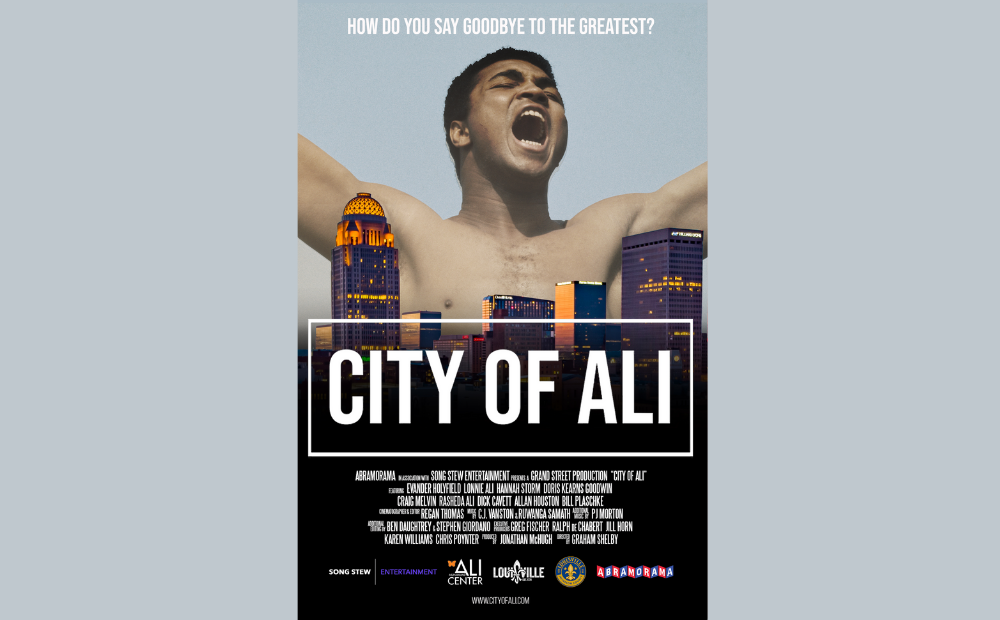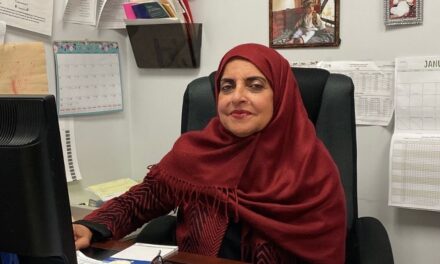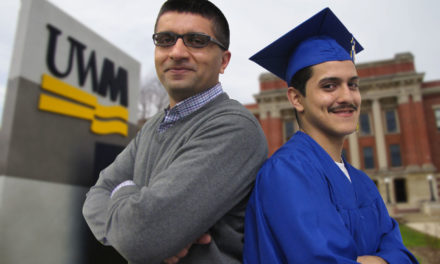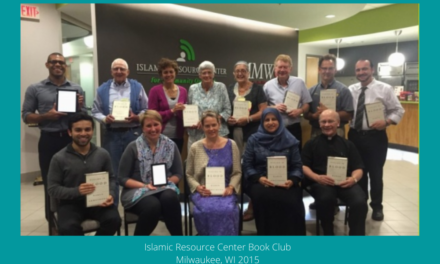New documentary City of Ali focuses on Muhammad Ali’s legacy.
The Milwaukee Muslim Film Festival is back and opens Thursday at the Oriental Theatre, 2230 N. Farwell Ave., Milwaukee, with a documentary about “The Greatest!”
“The greatest what?” you might ask.
For the entire second half of the 20th century, people around the globe knew exactly who held that nickname, as well as an Olympic gold medal in boxing at age 18 and the world heavyweight championship at 22.
Win or lose, Muhammad Ali was always “The Greatest” for reasons that go far beyond his athletic prowess, the makers of the feature-length documentary City of Ali say. They hope their documentary will help The Champ be remembered and his impact felt by generations to come, director Graham Shelby and producer Jonathan McHugh said in interviews this week with the Wisconsin Muslim Journal.
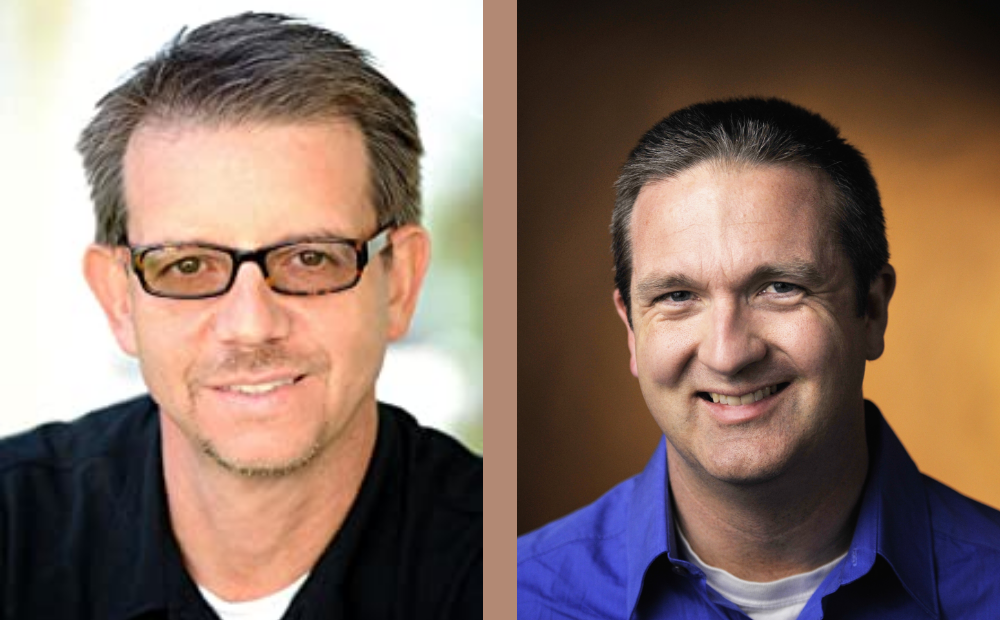
Producer Jonathan McHugh and director Graham Shelby will share a conversation with the audience Thursday after City of Ali screening at the Milwaukee Muslim Film Festival.
City of Ali begins and ends in Louisville, Kentucky, Ali’s hometown, the place that shaped him as he grew up and welcomed the world to celebrate his life when they put him to rest. The 81-minute documentary chronicles events after Ali’s death at 74 on June 3, 2016, when Louisville became the “City of Ali,” as crowds gathered to mourn a man like no other.
The film asks, “How do you say goodbye to The Greatest?” It tells the story of how the death of Ali brought the people of Louisville—and the world—together for one unforgettable week.
“People got on planes from all over the world and brought their families to Louisville because Ali has this kind of special power over people that comes from all he did,” McHugh said. That includes throwing away his titles by refusing to be drafted into the military because of ethical and religious objections to the Vietnam War, even if that meant going to prison; joining the Nation of Islam and changing his “slave name” to a Muslim one; converting to Sunni Islam; speaking out about the injustices Black people face. “It is a fascinating story and one of the great stories of the 20th century,” he said.
“His janazah (Muslim burial) is a huge part of the movie,” producer McHugh said.
“We grew up in other faith traditions,” Shelby added. “We wanted to do justice to Ali’s faith. You can’t do justice to telling about Ali’s impact and his life without talking about his Muslim faith, the importance of it to him and his importance to the Muslim community.”
“One of the things we are proud of in this movie, and I’m confident this is true—even the most devoted of Ali’s fans will learn something new,” Shelby said. “Even Muhammad’s daughter Rasheda saw things about him she didn’t know.”
While there are many documentaries and biographies of Ali, City of Ali is unique in focusing on Ali’s lasting impact rather than chronicling his life. It complements Ken Burn’s four-part documentary series Muhammad Ali that premiered on PBS in September, Shelby said. “We recommend seeing them both. They do not overlap.”
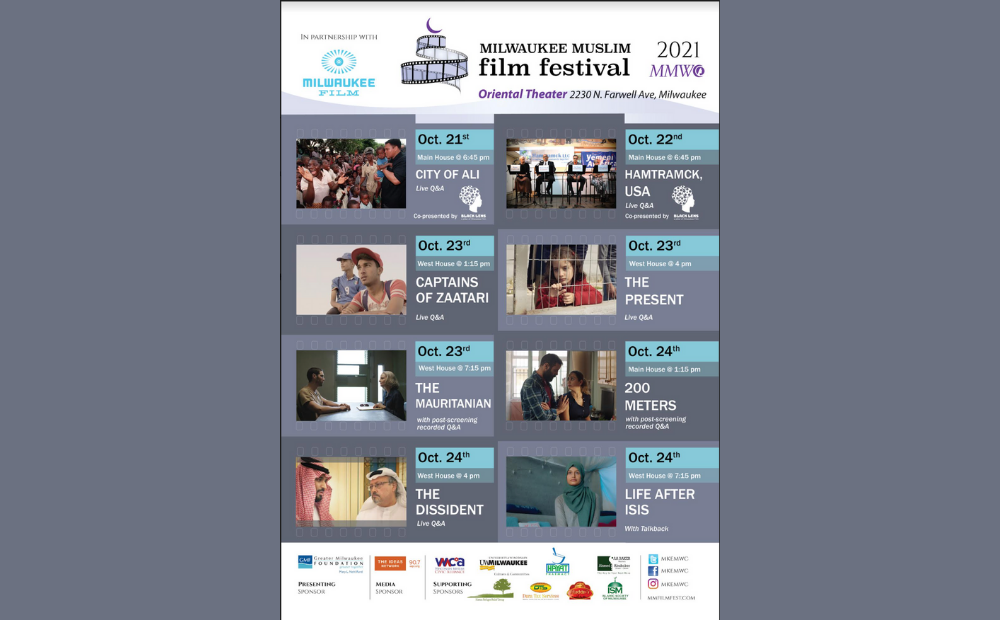
The 6th Annual Milwaukee Muslim Film Festival runs from Thursday, Oct. 21, to Sunday, Oct. 24.
City of Ali opens the 6th annual Milwaukee Muslim Film Thursday at 6:45 p.m. at the Oriental Theatre. It is presented in collaboration with Milwaukee’s Black Lens.
The audience is invited to participate in a post-screening conversation with Shelby and McHugh.
Tickets are on sale now.
Behind the scenes
This film project began in the Louisville mayor’s office, Shelby said. A writer and storyteller, Shelby was a speechwriter in the Louisville mayor’s office when Ali died.
“Everyone was doing stories about Muhammad,” he recalled. “Mayor Greg Fischer, who initiated work on the project, said we have to tell the story from our perspective, from the perspective of his hometown.
“We wanted to capture the spirit of the moment—the beauty, celebration and love, but also the mourning, all experienced in a very contentious time. It was a moment in June 2016 when it was a really good time to be reminded that we can be brought together.
“I lived through it,” Shelby said. “There is a scene in the film when Mayor Fischer gives a speech 12 hours after Mohammad passed. I helped write that speech. I was part of the city and attended the memorial and saw the 20-mile funeral procession and the more than 100,000 people there to say goodbye to him.”
“How do you find the story without imposing it? With any nonfiction story, you are bound by the facts – his birth, growing up in Louisville, being a boxer and becoming a global figure, then coming home to be laid to rest.
“We wanted to recreate that moment and what Muhammad meant to the people in Louisville and around the world,” Shelby said. “We brought in Jonathan McHugh, who has extensive experience in documentaries.”
McHugh joined the project two and a half years ago. The city had filmed the events around Ali’s death and the outpouring of respect and love for him, McHugh said. Shelby, McHugh and editor/cinematographer Regan Thomas worked together to add interviews, bringing in diverse voices to speak about Ali’s impact. Then McHugh and his team finished shaping and editing the footage into a full-length theatrical feature.
Five years after Mayor Fischer and Shelby’s initial conversation, “we put our film out in the world,” Shelby said.
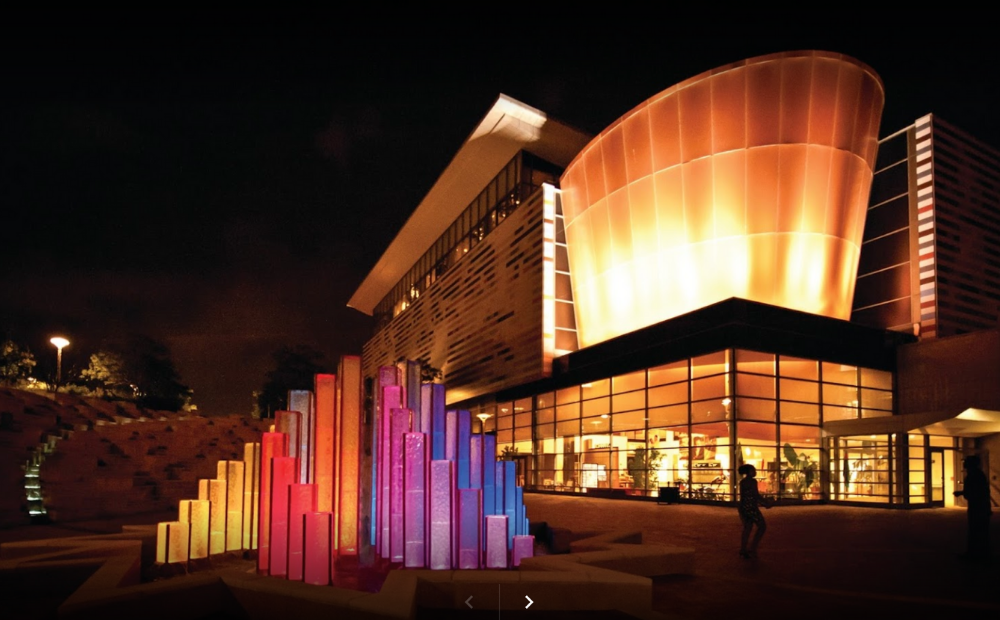
The Muhammad Ali Center in Louisville, Kentucky, is a museum and cultural center dedicated to teaching the lessons of Muhammad Ali’s life.
Keeping his legacy alive
The film City of Ali is part of a bigger vision, McHugh said.
Shelby and McHugh are working with the Louisville school system and the University of Louisville to build a curriculum around Muhammad called “The Principles of Ali,” McHugh explained.
“Our goal is to use the film as an education platform to keep the conversation going about what he stood for and what he did,” McHugh said. “He stood against oppression and against people who told him you can’t refuse the draft. You can’t be a Muslim. You can’t change your name. He was one of the first athlete activists. That lesson should be part of schools. Graham and I are incredibly passionate about it.”
Teaching Muhammad’s principles is also the mission of the Muhammad Ali Center. The museum and multicultural center is dedicated to teaching people about Ali and his principles: confidence, conviction, dedication, respect, giving and spirituality.
“When I screened the film for my students at the American University in Washington D.C., most of them would say, ‘I knew he was a boxer but I didn’t know he did all that stuff.’ People from his generation, and maybe the next, know his story, but the generation after that doesn’t. And what about the one after that?”
A meaningful life
“How he interacted with people and how he used his platform generously gave him a rich and memorable life,” Shelby said.
“His is a legacy like no other,” McHugh said. “His daughter Rasheda said her father’s focus was to try to do something good for somebody every day. That is something sorely needed today.”
“I was born in 1971 and I didn’t know exactly why he was such a big deal,” Shelby added. “To my parents and their generation, no one needed to explain who Ali was and why he mattered.
“One of my best moments was when my own son watched the film and said, ‘Now I get it.’”
